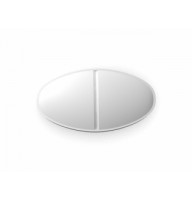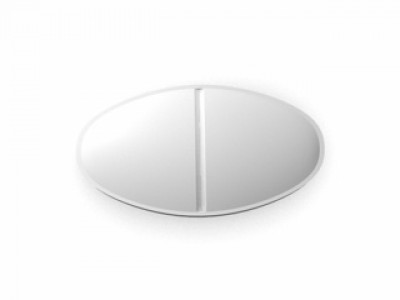Several medications and substances can interact with Uniphyl CR (Theophylline), affecting its effectiveness, increasing the risk of side effects, or altering its metabolism in the body. It's crucial to inform your healthcare provider about all medications you are currently taking, including prescription drugs, over-the-counter medications, herbal supplements, and vitamins, to minimize the risk of interactions.
One significant interaction involves medications that affect the liver enzymes responsible for metabolizing theophylline. Drugs such as cimetidine, erythromycin, clarithromycin, fluvoxamine, and certain antifungal medications can inhibit these enzymes, leading to increased levels of theophylline in the bloodstream. This can potentially result in toxic effects such as nausea, vomiting, rapid heart rate, or seizures. Conversely, drugs that induce liver enzymes, such as rifampin, carbamazepine, and phenytoin, can decrease theophylline levels, reducing its effectiveness.
Certain medications, particularly beta-blockers like propranolol and non-selective adenosine antagonists like caffeine, can enhance the effects of theophylline on the cardiovascular system, leading to increased heart rate or irregular heart rhythms. This interaction requires careful monitoring, especially in patients with pre-existing heart conditions.
Additionally, smoking tobacco and consuming large amounts of caffeine-containing beverages can increase the body's metabolism of theophylline, potentially decreasing its effectiveness. Conversely, reducing caffeine intake or quitting smoking can lead to higher theophylline levels in the bloodstream, necessitating dosage adjustments to avoid toxicity.
Other considerations include medications that affect potassium levels, such as diuretics (water pills), which can alter the effects of theophylline on muscle function. Certain antibiotics, anticonvulsants, and corticosteroids can also interact with theophylline, requiring adjustments in dosage or close monitoring to maintain therapeutic levels and minimize adverse effects.
In summary, understanding potential drug interactions with Uniphyl CR is essential for safe and effective treatment. Healthcare providers can assess individual risk factors and tailor treatment plans to minimize interactions while optimizing the management of respiratory conditions. Open communication with your healthcare provider about all medications and lifestyle factors is crucial to ensure the safest and most effective use of Uniphyl CR.

